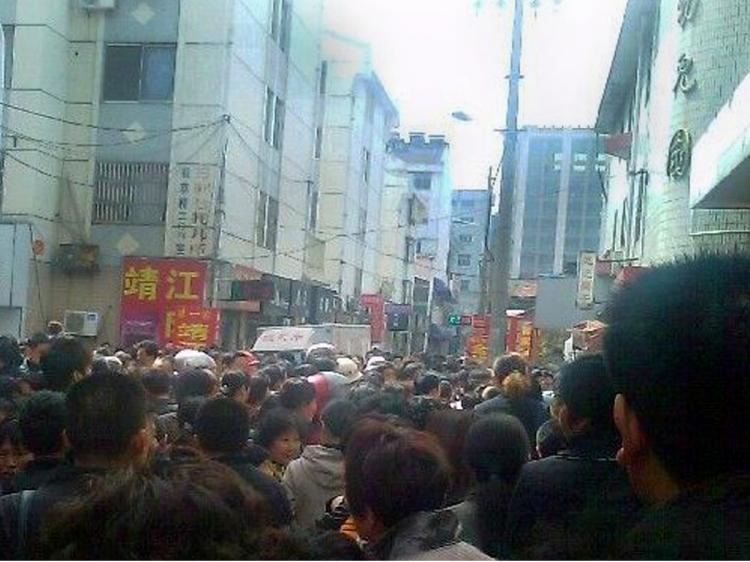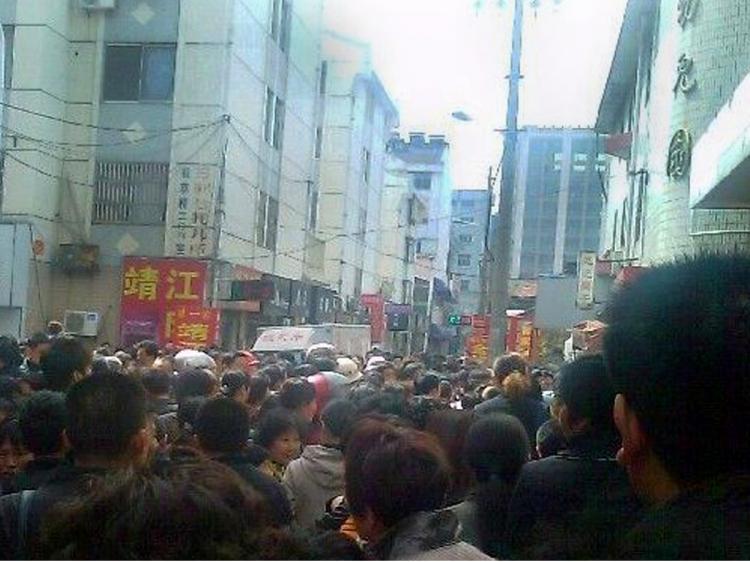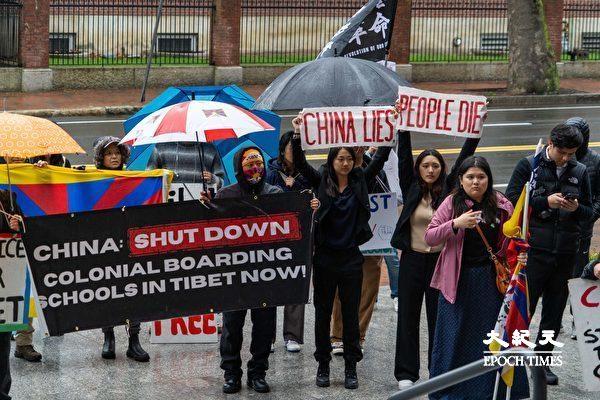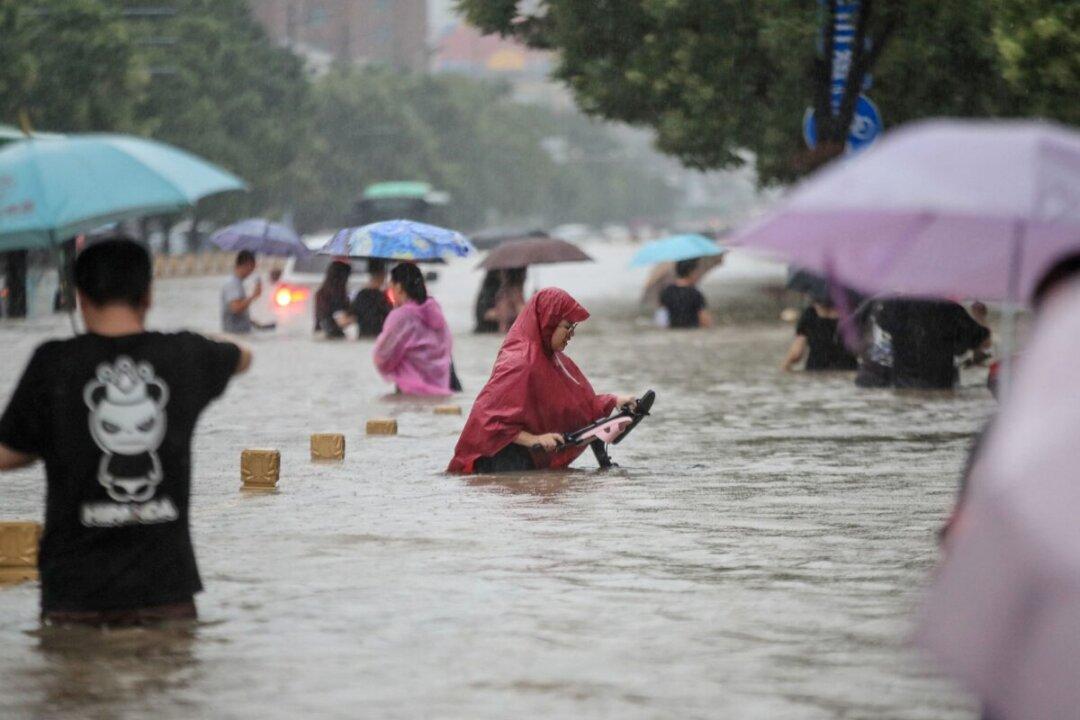Rage in China Over Multiple School Killings
School children have been assaulted on five occasions on various campuses within a span of 35 days.
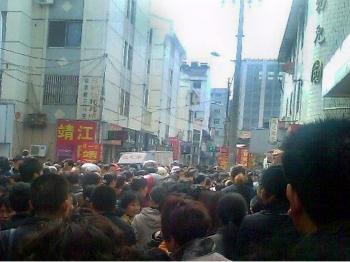
A crowd gather outside a kindergarten where a man attacked and injured 29 young children and three adults in Taixing, eastern China's Jiangsu province on April 29. AFP/Getty Images
|Updated:
